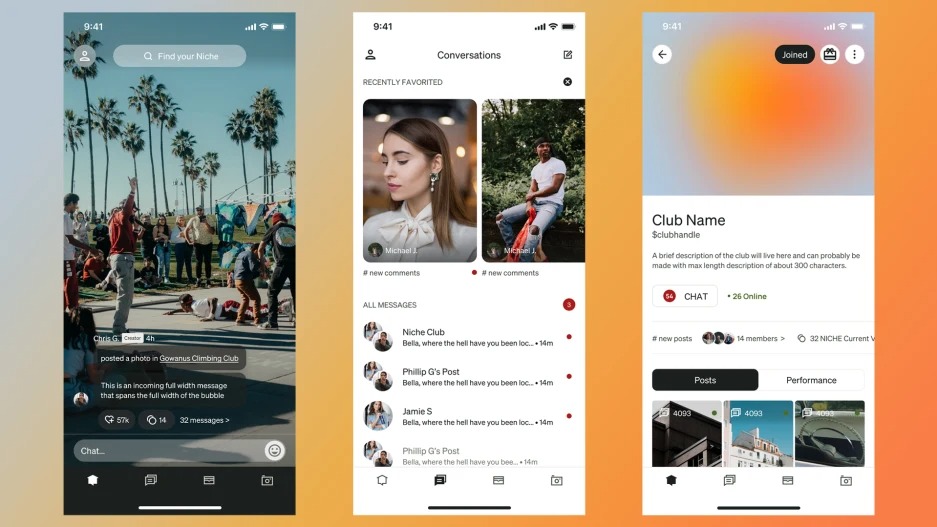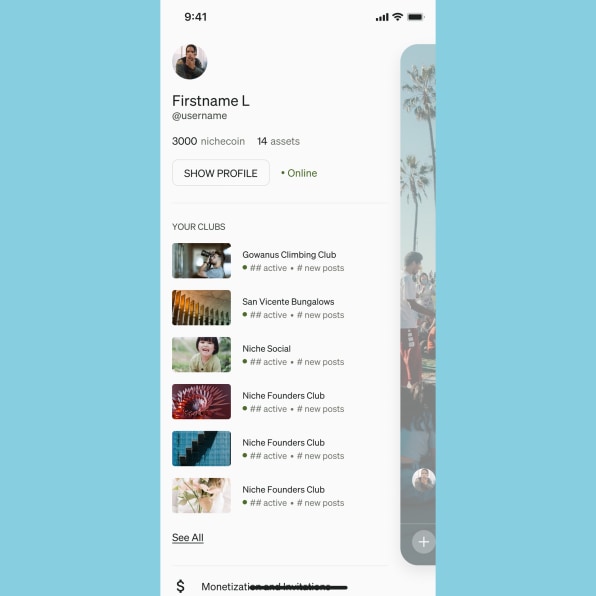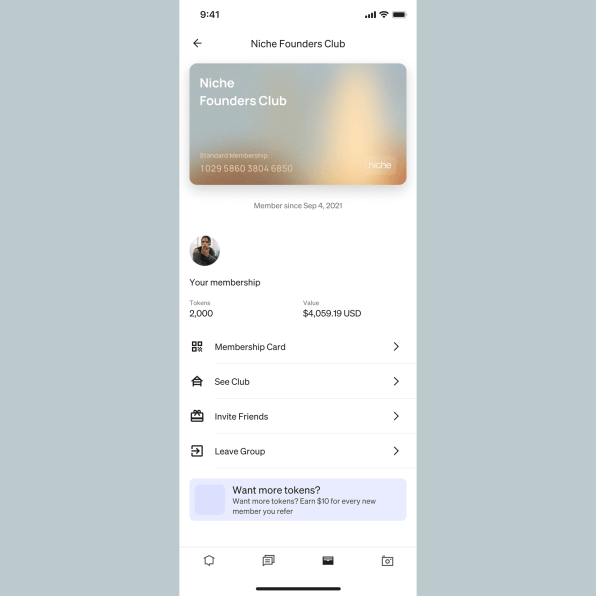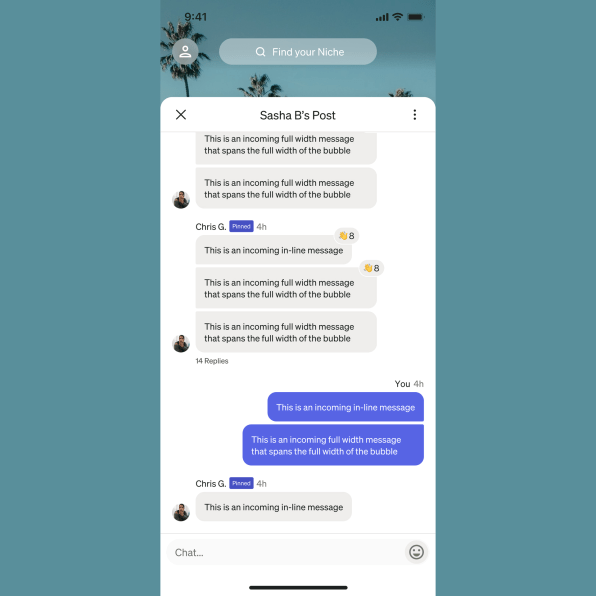- | 8:00 am
These Facebook and Tinder vets are building a Web3 social network called Niche
Niche plans to make money by helping creators find larger audiences of paying customers.

Huge, advertising-based, general-purpose social networks aren’t the high-growth cash cows they once were, as Facebook’s recent “growth” numbers would suggest. Many consumers, it turns out, would rather spend their time watching short-form videos than sharing memes and hitting “like” buttons. And new restrictions on user tracking have made it harder for mass-market social networks to target ads.
The founders of a new social network called Niche believe the next generation of social networks might cater to online communities formed around more specific interests, such as hobbies or creator businesses.

[Photo: courtesy of Niche]
“I think the first run of social networks was to connect everyone en masse—it’s your high school friends, your family; it’s a very large swath of connection and [with] very little in common,” says Niche CEO Christopher Gulczynski, who formerly held C-level positions at both Tinder and Bumble. “But I think the trend in social networking right now is to get smaller, to get more intimate around that relational status of everyone in the group.”So, on the Niche app, which became available in the App Store Tuesday, you would find groups formed around rock climbing or around people who enjoy collecting Star Wars memorabilia. Eventually, Niche will host groups based on many different things, including music artists and business events.
Importantly, Niche will not make money by showing ads to people in the groups, points out CTO Zaven Nahapetyan, the other cofounder, who spent years as a senior engineering manager at Facebook. Rather, Niche is set up so that the platform makes money when it helps creators make money, or when it helps users find valuable creator content.
“We want an app where our revenue comes from the value people are producing, whether that’s digital content an artist or musician is selling, or if it’s from value from within certain communities,” Nahapetyan says. “So for example, you might have different types of professional networks [or] fan clubs, people trying to organize events or planning things.”
Since creating and exchanging things of value is central to using Niche, the founders are building their social platform on top of the blockchain. They believe that setting up communities as decentralized autonomous organizations (DAOs) on the blockchain creates an economic system that lets members own, control, and monetize the content they create.

Niche is built with NEAR, a layer one blockchain technology that allows Niche to issue ownership tokens to people who join a specific community. It also allows creators, such as artists or writers or musicians, to issue NFTs representing their work, which group members can buy and resell. Since a DAO is a smart contract, the financial tokens created and exchanged on the platform can be structured so that Niche takes small cut of sales.But, explains Nahapetyan, much of the blockchain stuff will happen in the background, and community members won’t need to be Web3 experts to use it. “We make it really easy to spin up a DAO and to add new people in a way where people don’t realize it’s a DAO,” he says.

When you join a club on Niche, the platform issues you a token that represents your ownership of a fraction of the group. “It’s literally just a text link that you get, and you click it and you go through the sign-up flow on the app,” Nahapetyan says. The token costs nothing, and the app creates a free wallet in the background where the token is stored.
Nahapetyan and Gulczynski believe that as groups add more members and more content over time, they will become more valuable.
“The idea is you bootstrap these groups and then as they get more popular or more in demand, the value goes up, especially if there’s a fixed supply,” Nahapetyan says. “And so maybe this 200-person rock climbing group becomes really hot, and everyone wants to join—then the people who got in early can go on the open market and sell their tokens for a higher price.”
Niche isn’t the first social network to organize communities around creator content. Mighty Networks, for one, is designed on the same general principle. But Niche does seem unique in its use of the blockchain as the basis for the economy that underpins the network.
Niche’s ultimate success depends on creators and whether they gravitate to the new platform. Many creators use specialized platforms, such as Substack and Patreon, to market their content. They also use general-purpose networks like YouTube and Instagram, which, Gulczynski point out, weren’t originally built with the needs of creators in mind.

If Niche proves effective at matching creators with paying consumers, it might get traction. The app does create a social graph to track the interests of users, but for the purpose of suggesting creators and content to them, not for targeting them with ads.“[We’re] basically codifying an interest graph and then [we] match people up to that graph in a very intelligent way,” Gulczynski says. “We can do the same thing with content creators on the back end and go to [them] and say ‘Okay, we’ve got X amount of groups with X more people in them that are looking for content creators.’”
Niche, which now has 10 employees with offices in L.A. and New York City, just closed a $1.8 million “pre-seed” round led by MetaWeb, with some follow-on funding from Alumni Ventures Group. It also got a grant from its blockchain partner, the NEAR Foundation.







































